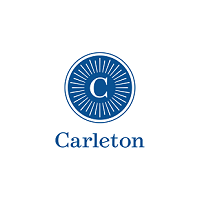Focused, Intensive Goal Setting: Making FIGS Work for You
By Brett Steenbarger
In a blog post from last year, we took a look at how we can improve our performance—in school, during internship, and on the job—by setting goals that are SMART:
- Specific
- Measurable
- Achievable
- Realistic
- Time-Bound
Goals steer our efforts and help us make improvements in the areas that matter most to us. By ensuring that our goals are SMART, we set ourselves up for success. SMART goals are goals with plans. Every goal needs a SMART map to get us from where we’re at now to where we want to go.
What I’ve found in my coaching of students and professionals is that many of them set so many goals that they cannot work on all of them in a hands-on fashion. I recently met with someone who was beginning their career in financial markets. They were motivated and realized that they had plenty to learn. When they brought in their list of goals, it went on for three pages! Imagine trying to make dozens of goals highly planned. We would quickly get bogged down and discouraged.
That is why I emphasize the importance of what I call FIGS: focused, intensive goal setting. The best goals focus on a very few priorities: what you most want and need to change now. You want goals that also focus your emotions. Those goals are most important to you and thus carry the highest urgency. Research in psychology suggests that we are most likely to change if we are in a high state of readiness, recognizing a need to change. For instance, someone with an alcohol problem may become aware of the negative consequences of drinking and focus all their energies on achieving sobriety. When we focus on goals in our emotions and in our behavior, change becomes a must, not merely an item on a to-do list.
That urgency and focus help us set goals that we can then work on intensively and consistently. When we dedicate specific activities to reaching our goals every single day, we internalize a sense of momentum that further motivates our change process. For instance, if our goal is to get into great aerobic and physical conditioning, we can commit to daily workouts with a coach, spending dedicated time on the treadmill, in the weight room, etc. Each workout tests our limits and allows us to see our progress, creating enthusiasm and a sense of accomplishment. Rather than work on many goals in an unplanned, haphazard way, we want to become very specific about the changes we wish to make and then commit to turning those goals into realities each day.
An internship is a great opportunity to engage in FIGS. What specific areas of your personal and career growth do you want to target? How will you work on those every day, track your progress, and learn from your mistakes? A journal can become a very effective tool for guaranteeing that you stay focused in what you’re trying to achieve and intensive in how you seek improvement. We grow most—and most reliably—when we pursue a few changes at a time, work intensively on those, and then set fresh goals. In that way, FIGS turns consistent challenge and growth into a true lifestyle.












